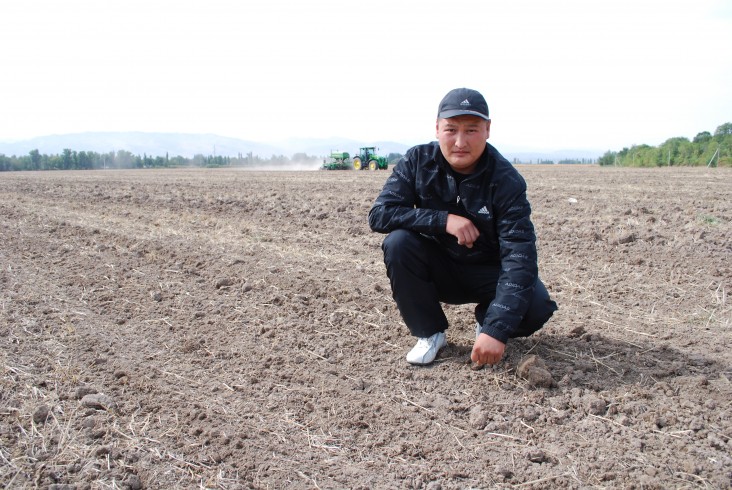
Kanybek Imankulov, a father of four, owns 45 hectares of non-irrigable land in Luxembourg village in northern Kyrgyzstan. A farmer since 1995, Imankulov grew mostly field crop -alfalfa, cereals, and corn-but had unimpressive results. Though average crop yields should have been around 4 metric tons per hectare, he only produced around half that. "I would spend weeks searching for available equipment and never managed to plant the crops on time," he said.
In 2009, Imankulov started participating in a USAID project that promotes no-till technology, a way of growing crops with less soil disturbance. No-till farming requires specialized seeding equipment designed to plant seeds into crop residues and soil. Through the project, jointly implemented with Eurasia Group KG through a Global Development Alliance partnership, Imankulov was trained on how to use the no-till machinery and received improved seeds at a subsidized price.
The benefits are myriad. No-till technology has been proven to reduce land erosion and decrease farmers' expenditures on fuel, planting, and other field operations, while also increasing crop productivity, enhancing soil quality, reducing the use of fertilizers, and increasing water infiltration into the soil.
Because of this, farmers are embracing this technology quickly. In 2009, no-till technology was applied on just 20 hectares of farm land. A year later, approximately 4,750 hectares throughout the Kyrgyz Republic were planted using these modern techniques. Analysis at the farm level indicates that the technology is cost-effective and a useful tool for restoring soil fertility.
This year, Imankulov received a yield of 3.5 metric tons of wheat per hectare, an increase of around 50 percent over previous yields. "I was impressed with the high quality of the seeds I received. I was surprised that my production costs were reduced this year, and yet I managed to earn more," he said. "Thanks to this project I am becoming a progressive farmer who uses the best agricultural machinery and learns farm management from the best agronomists in the country. I am motivated to learn and apply new technologies because I see that they make a real difference in my life and the life of my family."







Comment
Make a general inquiry or suggest an improvement.